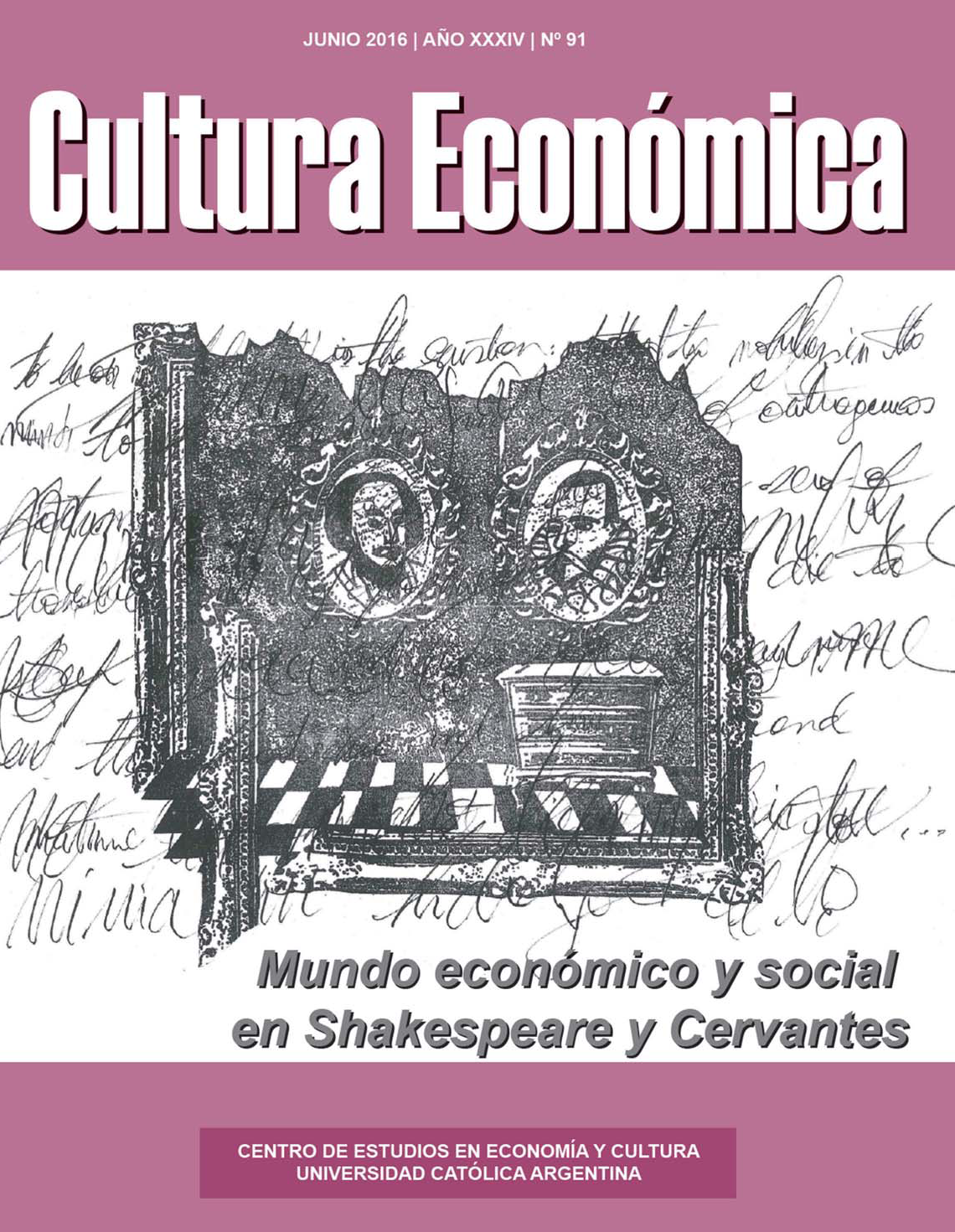Shakespeare’s Time: Culture, Society and Economy from a Literary Perspective
Keywords:
Shakespeare, theatre, social aspects, economic aspects, historical interestAbstract
Within the vast work of William Shakespeare, two texts stand out for the possibilities presented in terms of socioeconomic aspects relevant to the human being: The Merchant of Venice and Timon of Athens. Based on a commentary on the context of production, we attempt to propose an interpretation that, based on contemporary historical and critical sources, accounts for that of the author’s in regard to this dimension.Downloads
References
Astrana Marín, Luis (tr.) (1991). Timón de Atenas. Obras completas de W. Shakespeare, Madrid, Aguilar, II: 613-659.
Bloom, Harold (2009[1998]). Shakespeare. La expresión de lo humano. Bogotá, Verticales de Bolsillo.
Brook, Thomas (1991). The New Historicism and other old-fashioned topics, Princeton, Princeton University Press.
Greenblatt, Stephen (2005[1988]). “La circularidad de la energía social”. Historia y ficción. Comps. Cristina Godoy y María I. Libonati, Rosario, Universidad Nacional de Rosario.
Greenblatt, Stephen (2005). Will in the world. How Shakespeare became Shakespeare, Londres, Pimlico.
Holinshed, Rapahel y William Harrison (1997). Crónica. Descripción de la Inglaterra isabelina. Tr. María S. Justos y otras, Buenos Aires, Facultad de Filosofía y Letras, Universidad de Buenos Aires.
Kermode, Frank (2005 [2003])El tiempo de Shakespeare. Tr. Juan Manuel Ibeas. Barcelona, Debate.
McDonald, Russ (1996). The Bedford companion to Shakespeare. An introduction with documents, Boston, Bedford Books of San Martin Press.
MacLean, Kenneth y Stephen Unwin (2000). Guía de las obras dramáticas de Shakespeare. Tr. A. T. Desmonts, Barcelona, Alba.
Shakespeare, William (1975). The complete Works of William Shakespeare, New York, Gramercy Books.
Valverde, José María (tr.) (1994). Comedias de William Shakespeare, Barcelona, RBA.
Downloads
Published
How to Cite
Issue
Section
License













